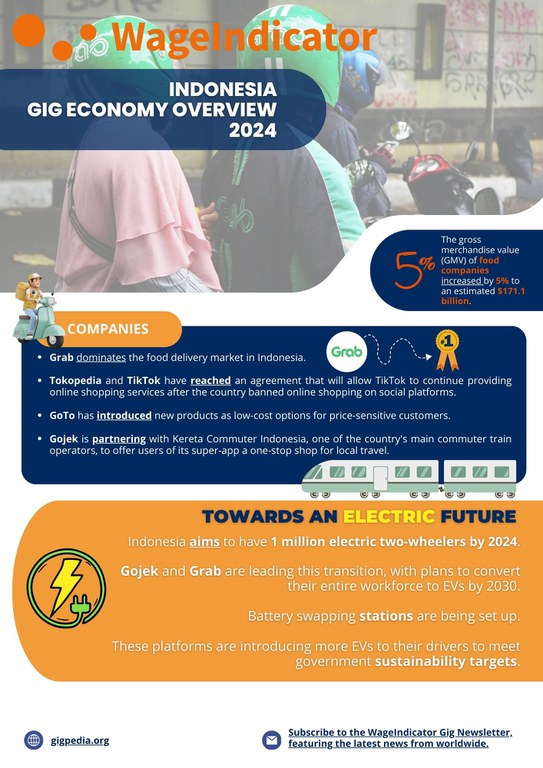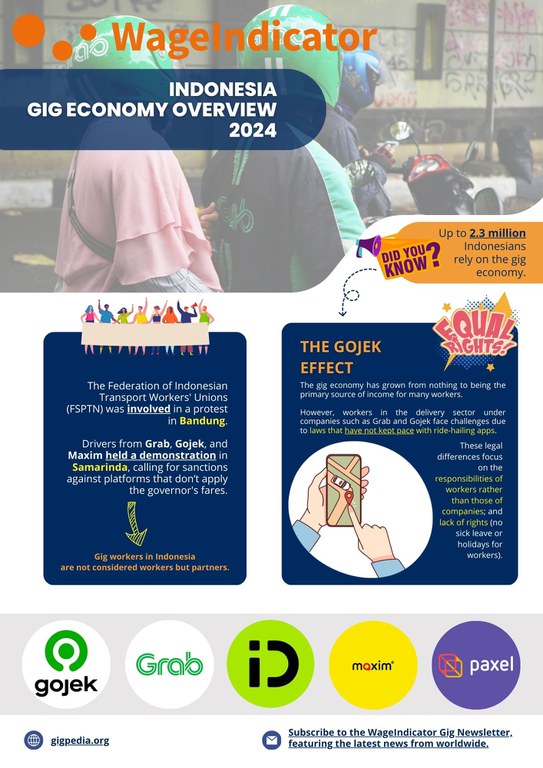TEXT FORMAT
INDONESIA GIG ECONOMY OVERVIEW 2024
The gross merchandise value (GMV) of food companies increased by 5% to an estimated $171.1 billion.
Grab dominates the food delivery market in Indonesia.
Tokopedia and TikTok have reached an agreement that will allow TikTok to continue providing online shopping services after the country banned online shopping on social platforms.
GoTo has introduced new products as low-cost options for price-sensitive customers.
Gojek is partnering with Kereta Commuter Indonesia, one of the country's main commuter train operators, to offer users of its super-app a one-stop shop for local travel.
Towards an electric future
Indonesia aims to have 1 million electric two-wheelers by 2024.
Gojek and Grab are leading this transition, with plans to convert their entire workforce to EVs by 2030.
Battery swapping stations are being set up.
These platforms are introducing more EVs to their drivers to meet government sustainability targets.
DID YOU KNOW?
Up to 2.3 million Indonesians rely on the gig economy.
The Federation of Indonesian Transport Workers' Unions (FSPTN) was involved in a protest in Bandung.
Drivers from Grab, Gojek, and Maxim held a demonstration in Samarinda, calling for sanctions against platforms that don’t apply the governor's fares.
Gig workers in Indonesia are not considered workers but partners.
THE GOJEK EFFECT
The gig economy has grown from nothing to being the primary source of income for many workers. However, workers in the delivery sector under companies such as Grab and Gojek face challenges due to laws that have not kept pace with ride-hailing apps.
These legal differences focus on the responsibilities of workers rather than those of companies; and lack of rights (no sick leave or holidays for workers).


